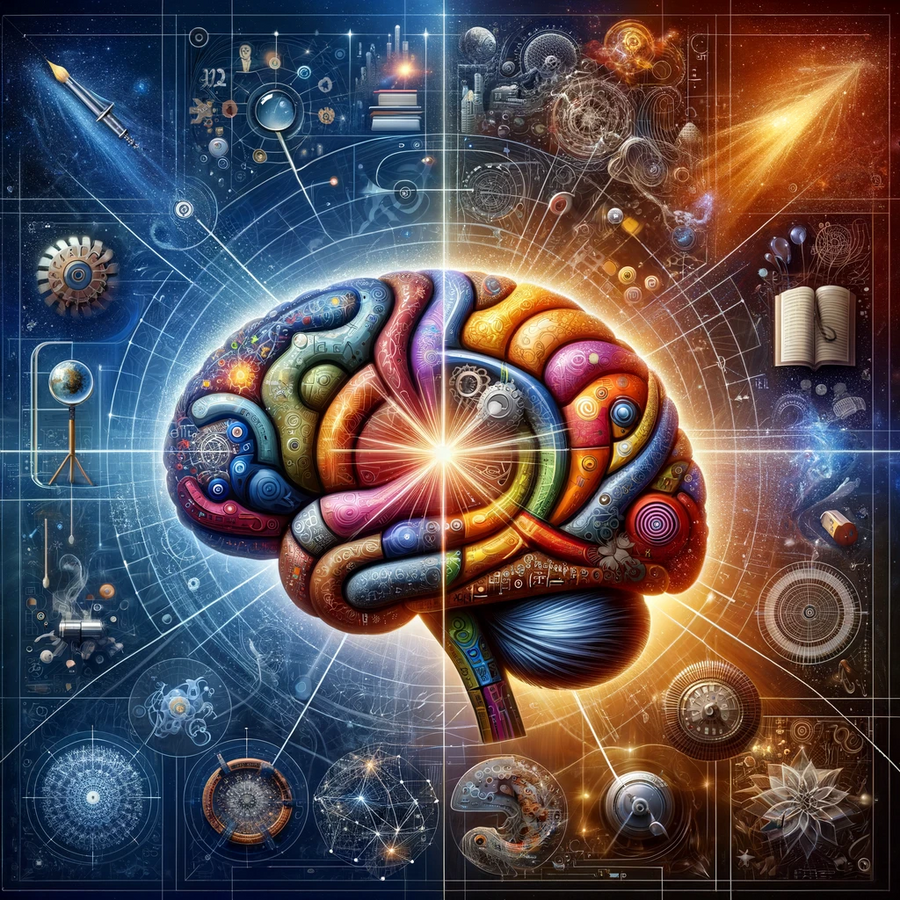Intelligence Quotient, commonly known as IQ, is a measure of a person's cognitive ability in comparison to the general population. An IQ score of 121 is considered superior and is an indicator of high intellectual potential. But what exactly does this mean? Let's delve deeper into the implications of a 121 IQ score.
The Meaning of IQ
The Intelligence Quotient is a measure designed to assess human intelligence. It's calculated through a variety of tests that evaluate different cognitive abilities such as memory, attention, language, and problem-solving skills.
IQ scores are designed to follow a bell curve, with the majority of people scoring around the average of 100. A score of 121 places an individual in the top 10% of the population, indicating superior intellectual abilities.
Understanding the IQ Scale
The IQ scale is divided into different categories, each representing a range of scores. The average IQ score, as mentioned earlier, is 100. Scores between 90 and 109 are considered average or normal intelligence. A score of 121 falls into the "superior" category, which ranges from 120 to 129.
This means that a person with an IQ of 121 has cognitive abilities superior to approximately 90% of the general population. They are likely to find academic and intellectual tasks easier than most people.
Implications of a 121 IQ Score
Having a high IQ score like 121 can have various implications. It can affect a person's academic performance, career prospects, and even social interactions.
People with a high IQ often excel in school and are more likely to pursue and succeed in intellectually demanding careers. They are often quick learners, able to understand complex concepts, and have a high capacity for critical thinking and problem-solving.
Academic Performance
Individuals with a 121 IQ score often perform well in academic settings. They tend to grasp new concepts quickly, excel in problem-solving tasks, and have an excellent memory. This can lead to high academic achievement and the ability to pursue advanced degrees.
However, it's important to note that while a high IQ can contribute to academic success, it's not the only factor. Other elements such as motivation, perseverance, and a supportive learning environment also play crucial roles.
Career Prospects
People with a high IQ are often suited to careers that require high levels of intellectual engagement and problem-solving. They may excel in fields such as science, technology, engineering, and mathematics (STEM), as well as in roles that require strategic planning and critical thinking.
However, a high IQ doesn't limit a person to these fields. Individuals with a 121 IQ score can succeed in any career that interests them and matches their skills and passions.
Social Implications
While a high IQ can have many benefits, it can also present some social challenges. People with a high IQ may sometimes feel isolated or misunderstood due to their intellectual abilities. They may also have high expectations placed on them by others, which can lead to stress and anxiety.
However, with the right support and understanding, these challenges can be managed. It's important for individuals with a high IQ to find a supportive social network and to develop coping strategies for dealing with stress and anxiety.
Maximizing Potential
Having a high IQ like 121 is a significant asset, but it's important to remember that it's just one aspect of a person's potential. To fully maximize their abilities, individuals with a high IQ should also focus on developing other skills and qualities.
These can include emotional intelligence, creativity, leadership skills, and a strong work ethic. By developing a well-rounded set of skills, individuals with a high IQ can maximize their potential and achieve their goals.
Developing Emotional Intelligence
Emotional intelligence refers to the ability to understand and manage one's own emotions, as well as the emotions of others. It's an important skill that can complement a high IQ by helping individuals navigate social situations and build strong relationships.
Developing emotional intelligence can involve learning to recognize and understand one's own emotions, developing empathy for others, and learning to manage emotional responses in a healthy way.
Cultivating Creativity
Creativity is another valuable skill that can complement a high IQ. It involves the ability to think outside the box, come up with innovative solutions, and see connections that others might miss.
Creativity can be cultivated through activities such as art, music, writing, or any activity that encourages imaginative thinking and problem-solving.
Building Leadership Skills
Leadership skills are crucial for individuals with a high IQ who aspire to take on leadership roles in their careers. These skills can include communication, decision-making, problem-solving, and the ability to inspire and motivate others.
Leadership skills can be developed through experiences such as team sports, volunteer work, or taking on leadership roles in school or work settings.
Conclusion
An IQ score of 121 is a sign of superior intellectual abilities and can open up many opportunities in academic and professional fields. However, it's important to remember that IQ is just one aspect of a person's potential.
By focusing on developing a well-rounded set of skills and qualities, individuals with a high IQ can maximize their potential and achieve their goals. Remember, intelligence is a powerful tool, but it's how you use it that truly matters.
